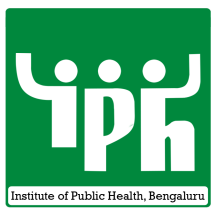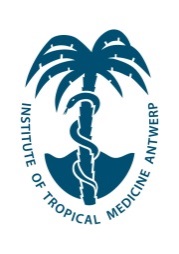 by Dr Vijayashree HY
by Dr Vijayashree HY
This session was chaired by Mr.Sunil Nandraj (Faculty, Public Health Foundation of India, Delhi) and co-chaired by Dr.Werner Soors (Institute of Tropical medicine, Antwerp).
Prof Fran Baum (Flinders University, Adelaide, Australia), in her presentation entitled ‘ The Tip of the Iceberg: neglected diseases and social determinants of health and health inequities’ spoke about approaches in reducing health inequities through action on social determinants of health (SDH). Click here to listen to her presentataion
Another panelist Dr Devaki Nambiar (Research Scientist, Public Health Foundation of India, New Delhi), by narrating a story of snake bite from the field, highlighted the health system failures at various levels in managing snake bite cases. She illustrated how larger cultural and social factors but also environmental factors shapes situations where snakebites cases becomes common in India. She emphasized the urgent need of health system preparedness to tackle such situations. It was debated that snake bite is indeed a neglected tropical disease and deserves more attention.
Dr. Upendra Bhojani (Faculty, Institute of Public Health, Bangalore) emphasized what Prof. Fran Baum described as Health in All policies concept. By highlighting how policies in different sectors like, transport, food, trade, taxation, agriculture as well as larger political economy affect whether tobacco use gets promoted or reduced in India. Subsequently he made other point that, it is not that health sector has no role in addressing SDH but there is an unique challenge to health professional to go beyond health care sector and become advocate for healthy policies in other sectors. He demonstrated how the practice of advocacy for health in all policies might look like, by briefing his experience along with his team members: Dr. Vishal, cancer surgeon who does political and administrative advocacy, Mr. Mohanraj, cancer patient spearheading voice of tobacco victim movement, and Mr. Amit doing media advocacy.
Some more discussions surrounding panelists’ presentations:
- What is the role of global community in reducing deaths by snake bites. How the global community could help in improving the situation in tropical countries?
- Social determinants of health for tobacco use: Is it critical to engage with upstream determinants like tobacco production units?
- Why despite having supporting evidences in health policies, why we fail on social determinants of health. Is it we have not really figured out how to do this?
- There is a consensus on the need to focus more on SDH. However, in the same vein we should also focus on quality health services. Changing SDH is difficult as there is power associated with it. If there is lack of political will and lack of resource allocation, can we expect a change in the system?
- Deaths caused road traffic accidents and suicides have been neglected. How SDH will determine this?
- SDH is all about power. It depends on how much control the system has on the community. It will take long time to change the SDH. It needs a strong leadership. But this leadership should come from within health services or from the society?

 The NTD (neglected tropical diseases) debate continued this morning at the ITM-IPH colloquium with a closer look at a few key challenges the research community is being faced with in terms of informing NTD control initiatives. Although the session focused predominantly on the case of visceral leishmaniasis and its control in the Indian subcontinent, the questions discussed throughout the presentations and discussions were just as relevant to other NTDs. What is the precise role of vector control in reducing disease incidence? What is the best vector control strategy, considering factors such as (cost-)effectiveness, acceptability and risk of insecticide resistance? What is the role of asymptomatic carriers of infection in disease transmission? How can we effectively and safely treat patients for these conditions, without running the risk of losing the few drugs we currently have at our disposal to drug resistance?
The NTD (neglected tropical diseases) debate continued this morning at the ITM-IPH colloquium with a closer look at a few key challenges the research community is being faced with in terms of informing NTD control initiatives. Although the session focused predominantly on the case of visceral leishmaniasis and its control in the Indian subcontinent, the questions discussed throughout the presentations and discussions were just as relevant to other NTDs. What is the precise role of vector control in reducing disease incidence? What is the best vector control strategy, considering factors such as (cost-)effectiveness, acceptability and risk of insecticide resistance? What is the role of asymptomatic carriers of infection in disease transmission? How can we effectively and safely treat patients for these conditions, without running the risk of losing the few drugs we currently have at our disposal to drug resistance? by Dr Vijayashree HY
by Dr Vijayashree HY by David Hendrickx
by David Hendrickx 


 Dr.Vijayashree is a medical graduate, currently working as faculty at the Institute of Public Health, Bangalore. She is pursuing PhD from the Institute of tropical medicine, Antwerp, Belgium. Her study focuses on public private partnerships in health care, with particular emphasis on National Tuberculosis programme in India. She is also involved in a World Bank project where she is evaluating the Results-Based Financing strategies for Tuberculosis Control in the Private Sector in India.
Dr.Vijayashree is a medical graduate, currently working as faculty at the Institute of Public Health, Bangalore. She is pursuing PhD from the Institute of tropical medicine, Antwerp, Belgium. Her study focuses on public private partnerships in health care, with particular emphasis on National Tuberculosis programme in India. She is also involved in a World Bank project where she is evaluating the Results-Based Financing strategies for Tuberculosis Control in the Private Sector in India. As highlighted in a previous post, there will be two young researchers reporting from the sessions. Their report will be posted online here on a day of the session.
As highlighted in a previous post, there will be two young researchers reporting from the sessions. Their report will be posted online here on a day of the session.
 Press Release:
Press Release:

